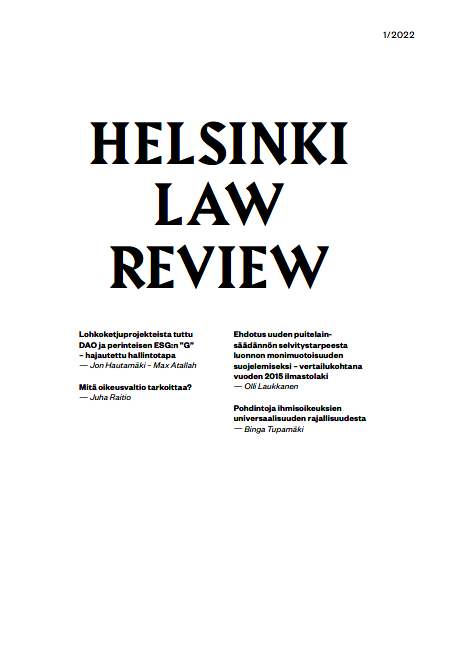On the Limitations of the Universality of Human Rights
DOI:
https://doi.org/10.33344/vol16iss1pp54-72Keywords:
human rights, universalism, utopia, legal theory, natural law, legal positivismAbstract
Human rights are the most universally accepted set of norms that have ever existed. Thus, finding a person or community that would deny their fundamental importance to our society is not easy. According to some views, we live in a global revolution of rights, where fundamental rights are a central part of all political discussions. The dilemma of the universality of human rights holds various aspects, of which this article identifies four. The first and most challenging question is how to justify the fact that human rights universally bind everyone. This must be kept separate from the second, much more practical question of how human rights can be applied universally. Thirdly, the politicization of human rights can be considered an obstacle to universal principles as politics are typically dependent on momentary issues. Fourth, one must consider the inadequacy of human rights in their current form and how human rights fail to solve some of the critical problems they were created to solve. The article's main objective is to go through the challenges of universality at a general level. The purpose of this article is not to offer a certain kind of solution to a specific debate but to map what kind of limitations come into question when considering the universality of human rights.



